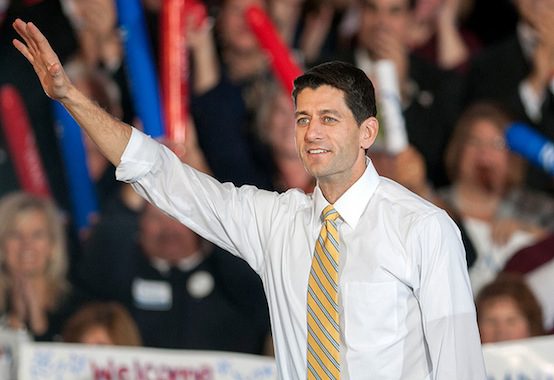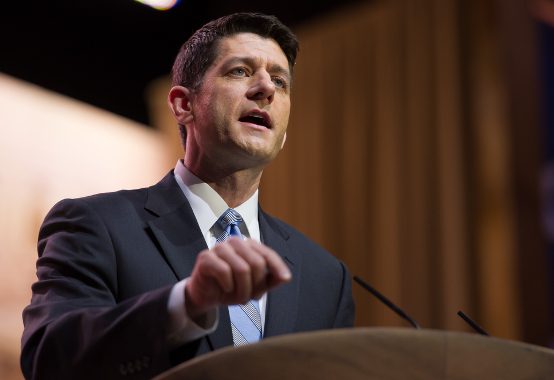The Ryan Budget’s Sigh of Resignation

Writing in the New Republic, in 2005, less than a year after the reelection of George W. Bush had left many liberals feeling that they’d lost the “war of ideas,” Jonathan Chait, as ever contrary, insisted that there was no need for “new” ideas. The old ones, so to speak, were just fine. What the center-left lacked was the power to enact them:
It’s one thing for Democrats to sketch out the sort of alternatives they would prefer if they ran Washington. But, as long as Republicans do run Washington—and certainly as long as Bush sits in the Oval Office—doing nothing is often going to be the best available scenario for liberals. Emphasizing the downside of bad change rather than the upside of positive change reflects political necessity, not intellectual failure.
I thought of Chait’s piece as I read through House Budget Committee Chairman Paul Ryan’s latest annual budget resolution, otherwise known as “The Path to Prosperity.” If you pulled Ryan aside and threw the Lasso of Truth around him, I imagine he’d say something very like what Chait expressed in 2005: “I like my ideas. I could have done a lot more to realize them if I were vice president. But for now, I have to wait.”
The Ryan budget has two overarching policy objectives: 1) Entitlement reform: specifically, putting a limit on Medicare’s annual budget and giving states a lot more flexibility over their Medicaid rolls; and 2) radically simplifying the tax code.
Ryan is no fool; he knows there is no chance the Obama administration will accept Medicare premium support or Medicaid block-granting. But it’s what he believes should be done, and so he’s proposing it as a matter of course. There is, however, a sliver of hope that Republicans will reach an agreement with Obama on tax reform. As Ezra Klein has noticed, Ryan’s budget is vaguer in this area than it had been. A top tax rate of 25 percent is not a hard plank, but rather a “goal” he’d like Congress to “achieve.”
Add that wiggle room to Ryan’s remark yesterday that he has no desire to relitigate the fiscal cliff battle over revenue, and you have a white smoke signal that says, “On taxes, we might be able to do some business.”
Some of my favorite Ryan-watchers, like Ross Douthat and James Pethokoukis, had clearly been hoping that Ryan would produce something fresher and less straitened than he did. I appreciate where they’re coming from, and yet, perhaps too charitably, I’m reading in the Ryan Budget 3.0 a Chait-like sigh of resignation—of resignation to, as he has put it more than once since losing in November, the “reality of divided government.”
Aside from its base-stroking unrealism about a balanced budget in 10 years, there is a subtle sort of realism about this new Ryan budget. In its very lack of creative “new ideas,” there is an admission that “The Path to Prosperity” no longer has the magic-rabbit power it had after the 2010 midterm election. It’s a budget document scarcely worth more than the PDF pixels in which it’s displayed.
I think Ryan knows this, and expended very little effort to hide the fact.
